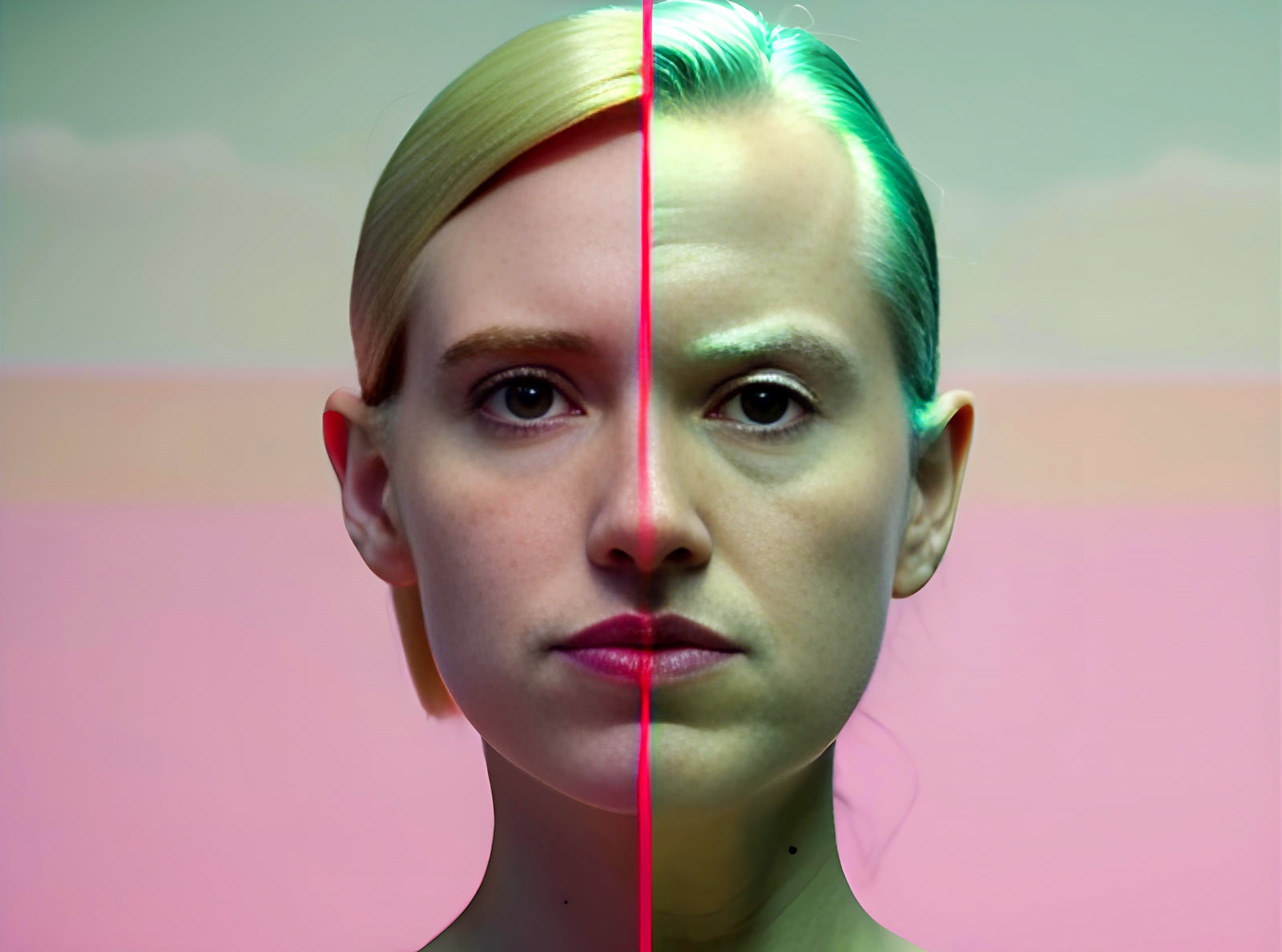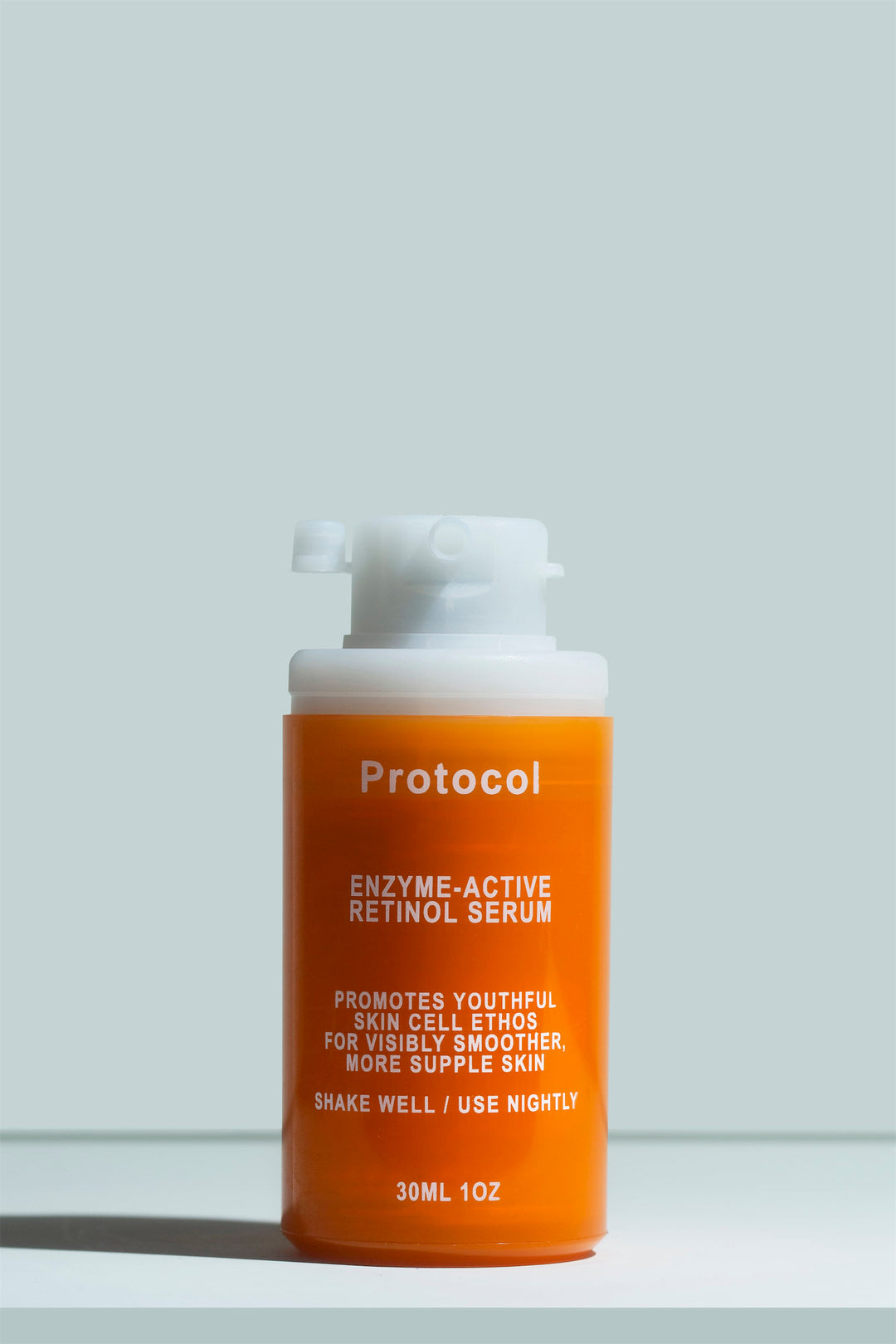Premature Aging: Signs, Science, and How to Prevent It

For many of us, the signs that time is passing are terrifying. Can you believe that people born in the 2000s are allowed to vote? Heck, some of them are already experiencing the signs of premature aging!
We all get older - it's an undeniable fact of life, and it’s not something we need to try and hide. And yet, no one wants to look older than they are. If there are external factors that bring on those wrinkles and dark spots faster and harder, wouldn't you want to do something about them? That’s exactly what we’ll discuss in this post.
What is premature aging?
Premature aging is the term used to refer to signs of aging that show up earlier than they should.
When talking about the skin, it’s a casual term for extrinsic aging - the idea that exposure to various external forces causes our skin to age faster, and show certain signs of aging that wouldn’t necessarily occur as a result of genetics.
The concept of extrinsic aging is usually used in contrast to intrinsic aging or chronological aging, which is the inevitable skin degradation that occurs as we age. Chronological aging is largely informed by individual genetics.
Premature aging is fairly simple (though not necessarily easy) to prevent, while intrinsic aging is much tougher.
That said, you might be shocked to realize just how major the difference is between premature and chronological aging. A famous 2009 twin study compared the skin of twins with different levels of skin aging - the twins who smoked or didn’t practice good sun protection habits experienced a higher level of premature aging, which correlated with significantly more and deeper wrinkles, increased skin laxity, and hyperpigmentation. The best way to understand the difference is to look at comparison photos.
What causes premature aging?
Premature aging is caused by lifestyle habits and external factors that speed skin breakdown and contribute to the formation of wrinkles, hyperpigmentation, or other visible signs of skin aging.
- Sun exposure: The primary contributor to premature aging is sun exposure. When UVA and UVB rays from the sun come in contact with the skin, they produce free radicals, which are unstable molecules that cause a disruptive cascade of damage. By damaging skin cell DNA, they speed the aging process and hurt the skin’s regeneration abilities. Experts estimate that around 80% of skin aging can actually be attributed to sun exposure.
- Smoking: Cigarette smoke is incredibly damaging to the skin. The free radicals in cigarette smoke are one source of damage to the skin, but smoking also reduces blood flow to the skin, which corresponds with impaired function. Studies show that smoking is directly related to loss of elasticity and wrinkle formation in the skin and that the level of severity corresponds with the amount of smoking.
- Pollution: Pollution is another common source of free radical damage, especially for those who live in cities.
- Irritating products: Inflammation actually induces oxidative stress and leads to premature aging.
- Bad diet: How we nourish our body on the inside can certainly translate through our skin, and not in some strange or specific way. Our bodies need nutrients in order to heal and regenerate themselves. Simply put, a bad diet causes your body as a whole to age faster, which also shows on your skin.
- Excessive alcohol consumption: Alcohol causes oxidative stress all on its own, and it reduces the body’s ability to fight off oxidative stress, so excessive consumption speeds biological aging and increases markers of skin aging.
- Chronic dryness and dehydration: When the skin is unable to hang on to water, almost all of its functions become impaired, including its ability to shed dead skin cells. In the short term, wrinkles seem more prominent, but in the long term, the dryness can speed up premature aging as the skin becomes more prone to inflammation.
- Blue light: In recent years, there has been a big focus on artificial sources of light and their contribution to premature aging. Research suggests that blue light may contribute to the formation of free radicals on the skin, although how much it exactly impacts the skin is unclear (and possibly minimal).
- Repetitive facial movements: Oddly enough, facial movements are also considered contributors to premature aging, at least according to the American Academy of Dermatology. Frankly, we reject their presence on the list of causes! Making facial expressions is a normal, necessary, and healthy part of human communication and emotional expression.
The science of premature aging
Most of the causes of premature aging are related to exposure to unstable molecules or atoms that cause a chain reaction of damage to cells.
You’ll often hear these molecules referred to as free radicals or as reactive oxygen species (ROS) - while the two terms aren’t interchangeable, there’s a lot of overlap between the two categories.
These unstable molecules start a chain reaction of damage to the DNA inside your cells, breaking them down and resulting in all kinds of impaired function. When it impacts the skin, this type of damage harms its integrity and ability to regenerate healthily.
It impacts the collagen in the top layers of the skin, leading to a general breakdown and fine-line formation. It also impacts the formation of new collagen in between the dermis and epidermis, hurting connectivity and resulting in deeper wrinkles.
It can also harm the skin in other ways, such as increasing inflammation which leads to skin sensitivity and hyperpigmentation, not to mention serious risks to your health like skin cancer.
What are the signs of premature aging?
It’s not necessarily easy to distinguish the signs of premature aging from chronological aging. The former is a factor that speeds up the latter. Some of the symptoms of premature aging, like wrinkles and fine lines, are associated with aging in general.
That said, these are the key signs of premature skin aging:
- Tight clusters of fine lines, as opposed to expression wrinkles caused by chronological aging
- Faster formation of deep wrinkles and decrease in elasticity
- Hyperpigmentation like dark spots and melasma - this is often caused by sun exposure and is considered a key marker of photoaging
- Rough skin texture
- Visible blood vessels, especially in men
- Actinic keratosis or precancerous spots that will require immediate medical care
How to prevent premature aging?
And now, the real question - how do you prevent premature aging?
- Sunscreen: The #1 anti-aging product forever and always. Sunscreen actively stops the sun’s rays from impacting the skin and forming free radicals in the first place. Check out our top sunscreens for recommendations that block both UVA and UVB.
- UPF-rated clothing, hats, and sunglasses: Another excellent sun protection strategy is to literally cover up. Hats with a UPF rating (a measurement of sun protection for clothing) are excellent for preventing sun damage and compensating for potential sunscreen failure. Wearing sunglasses can also help protect your eyes, and if you find yourself squinting a lot in the sun, it can prevent wrinkles from that type of repeated movement.
- Moisturizers: Moisturizers are underrated - even the simplest formulas are incredibly beneficial for keeping the skin resilient, which allows it to continue regenerating in a healthy manner. It also keeps the skin feeling good and has the short-term ability to keep the skin looking plump and smooth.
- Use antioxidants: Antioxidants are compounds that actively counteract the damaging chain reaction caused by free radicals and reactive oxygen species. Vitamin C is one of the best of the bunch, but it’s also quite unstable, which is why it has to be packaged in a format that keeps it fresh for longer. That said, there are many other excellent antioxidants in skincare that still work even if they’re not as powerful. They include niacinamide, green tea extract, and vitamin E, just to name a few.
- Retinoids: Retinoids, and especially the more clinically researched ones like retinol, retinaldehyde, and tretinoin, are unique in that they don’t just help prevent premature aging, but they also reverse signs of skin aging in general by stimulating new collagen production deep within the skin. That’s why we created the Enzyme-Active Retinol Serum, which contains the most potent cosmetic retinoid in existence.
- Chemical exfoliation: When done well, exfoliation improves the skin renewal process by removing damaged dead skin cells from the surface. This not only helps skincare products penetrate better but it also actively improves dermal thickness, which correlates with a reduction in wrinkle size and stronger, firmer skin. It’s no surprise that using exfoliants with ingredients like glycolic and lactic acid has been found to visibly reduce markers of photoaging like wrinkles and hyperpigmentation.
- Avoid irritation: Causes of skin irritation are highly individual, but finding ways to avoid it is key for preventing premature aging, especially if you have sensitive skin. The best way to avoid irritation is to avoid your individual triggers while following a gentle skincare routine suitable for sensitive skin.
- Live well: We could probably write a whole series of blogs about what living well means, but we’re not wellness experts - we’re skintellectuals. Generally, avoiding smoking and excessive alcohol consumption, consuming a nutritious diet, exercising, sleeping enough, avoiding stress, and taking care of your mental health are all habits that will help prevent your body’s premature aging, which will impact how your skin looks.
Get ahead of the curve with anti-aging skincare
Premature aging is an unwelcome surprise. Dealing with the natural aging process is already hard enough, so how dare the sun make it worse with its shiny onslaught of oxidative damage?
In this case, the best offense is defense. Preventing premature aging is all about protecting your skin, so you can keep looking great for your age (and not necessarily trying to look younger).
Plus, gearing your skincare routine towards age prevention can have other benefits, like protecting you from skin cancer and keeping your skin barrier intact.
If you’re already following most of the tips we mentioned in the article, like not smoking and using sunscreen, you’re well ahead of the curve! That said if you want to kick it up a notch, check out our anti-aging Mini Molecular Super duo, which features our Retinol Serum and Vitamin C Superserum. You never know, they might even reverse some of your existing signs of aging!




